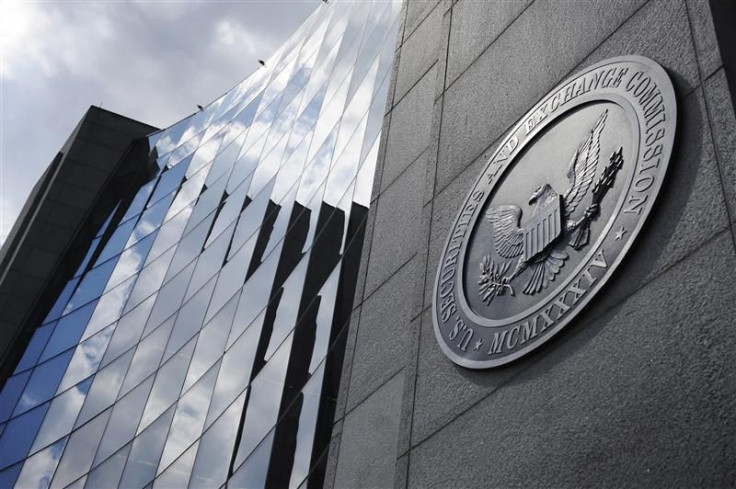SEC Seeks To Expand Corporate Whistle-blower Protection, But It's Too Late For One

The Securities and Exchange Commission (SEC) is trying to expand the definition of a corporate whistle-blower to boost protections for potential whistle-blowers, but the SEC's latest such effort has come too late for at least one person.
The Securities and Exchange Commission filed an amicus brief Thursday in a case involving a German company, arguing that securities rules protect whistleblowers whether they report to their employers or to the commission directly.
That's a distinction with a very real difference, at least to Khaled Asadi, an Iraqi employee of General Electric Company (NYSE:GE) who worried that GE hired another Iraqi specifically to “curry favor” with Iraqi utility officials. He raised his concerns with the company.
About a year later, Asadi was fired, according to court documents in a wrongful termination civil suit he filed against GE. Asadi alleged that he’d suffered retaliation as a whistleblower flagging corporate wrongdoing, like violations of anti-bribery laws, even though statutes forbid such retaliation.
But Asadi lost his case on appeal. Judges in the Fifth Circuit ruled that Asadi failed to qualify as a whistleblower because he reported to his employer internally, and not to the SEC specifically. They cited arguments made by GE’s attorneys.
GE declined to comment to IBTimes, but in its court case the company argued that Asadi wasn’t protected by the anti-retaliation laws he invoked. GE’s attorneys added that Asadi’s allegations of securities violations by GE weren’t backed with sufficient evidence.
“The whistleblower-protection provision unambiguously requires individuals to provide information…to the SEC to qualify for protection,” reads the July 2013 ruling. An earlier court ruling in the case added that whistleblower protections don’t necessarily extend beyond U.S. borders, so whistleblowers abroad may be left unprotected.
In its recent filing, the commission weighed in on a pending lawsuit against Siemens AG (FRA:SIE ), which is based in Muenchen, Germany.
“Securities laws recognize that internal company reporting by employees and others is important for deterring, detecting, and stopping unlawful conduct,” argued the SEC in its amicus brief.
The SEC clarified its position on the same point in earlier rule-making, though judges in the Asadi case recently dismissed their position as both inconsistent and defying Congressional intent.
Other court rulings on the definition of whistleblower were mostly lower court decisions, said Motley Rice LLC lawyer Rebecca Katz to IBTimes in November 2013. Lower courts took an “expansive” view of whistle-blower protections, wrote Katz in an earlier blogpost, mirroring other commentary.
The Asadi decision “is the only Circuit Court decision on the definition of 'whistleblower' and the eligibility to obtain anti-retaliation protections,” she said at the time in an email.
In the Siemens case, whistleblower definitions are also partly at stake, though judges argued that plaintiff Meng-Lin Liu’s Taiwanese residency status left him ineligible for protection. Liu alleged that Siemens China engaged in a kickback scheme, selling health care equipment at inflated prices to North Korean and Chinese public hospitals, and claimed he was fired for reporting that internally.
Other securities laws, like the 2002 Sarbanes Oxley Act, protect whistleblowers, but offer lesser monetary rewards. The SEC’s whistleblowing program allows informants to receive up to 30 percent of money collected if an investigation is successful. The largest award so far has come to over $14 million.
Asadi’s attorney Ronald Dupree doesn’t plan to appeal Asadi’s case to the Supreme Court.
"The SEC's thorough and concise brief reflects Congressional intent to protect employees who come forward with information regarding securities law violations,” he told IBTimes in an email.
“These rules were intended to prohibit companies from retaliating against employees in these situations. Hopefully the 2nd Circuit will agree with this reading of the statute."
Thousands of whistleblowing tips have been received, but only a handful have resulted in rewards to whistle-blowers.
For foreigners, which arguably includes Asadi alongside Liu, whistleblowing may present both risks and rewards.
Foreign citizens can receive whistleblower rewards under the Dodd-Frank Act, but may be legally unprotected from retaliation by their employers, Katz told IBTimes earlier.
© Copyright IBTimes 2024. All rights reserved.




















